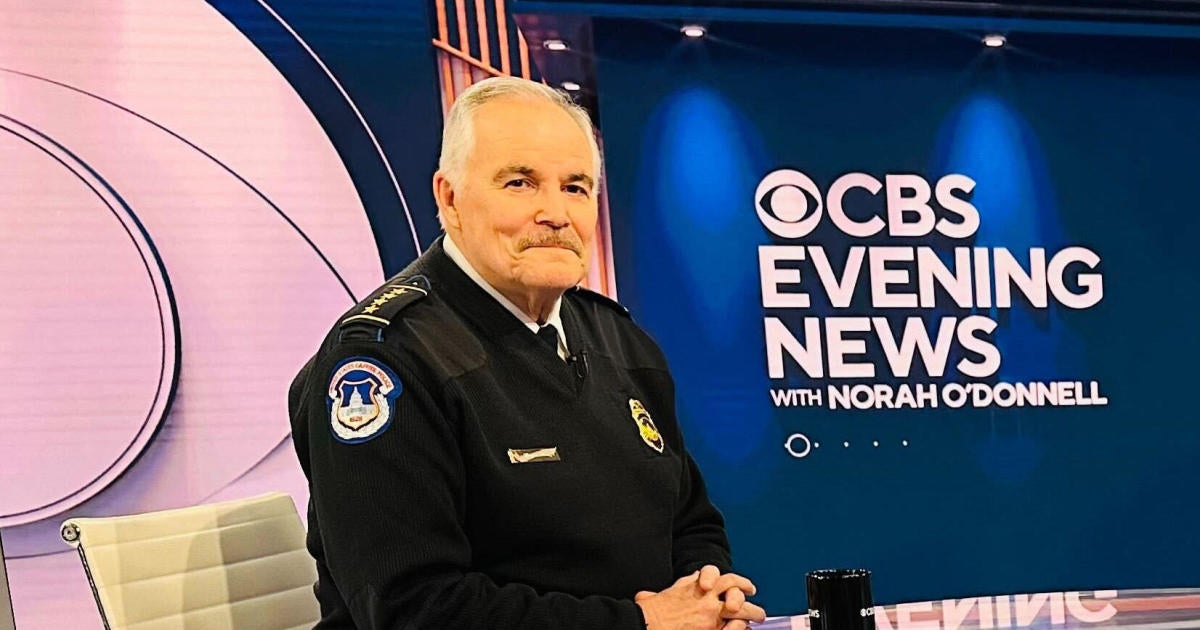Trump's Capitol Riot Pardons Spark Outrage: Police Chief Manger Speaks Out
President Trump's sweeping pardons for those involved in the January 6th Capitol riot have ignited a firestorm of controversy, with U.S. Capitol Police Chief Thomas Manger expressing deep concern and anger. The move has sparked heated debate, leaving many questioning the implications for law enforcement and the rule of law. Chief Manger's outspoken criticism highlights the significant impact these pardons have had on morale and the future of policing.
The Controversy: Pardons and Their Fallout
The sheer scale of the pardons—nearly 1,500 individuals—is unprecedented. Among those receiving clemency are individuals convicted of serious crimes, including assaulting police officers and seditious conspiracy. This has left many feeling betrayed, particularly within law enforcement. Chief Manger himself voiced fears over the message this sends to his officers: "I worry about just how this impacts them, and I don't want them handling some protest or making some arrest in the future and scratching their head wondering, 'Well, I wonder what's going to happen with this case?'"
The Impact on Officer Morale
The pardons have understandably shaken the morale of Capitol Police officers. Many feel their efforts during the riot, where they faced brutal attacks, have been devalued. Their sense of betrayal runs deep. This is particularly poignant, given over 140 officers were assaulted during the attack. Chief Manger emphasizes, "They believe that they were doing their job properly that day, and this sends a message to them that somehow it was OK for these folks to do the things that they did." This sense of injustice has cast a long shadow over the department and created concern about future commitment.
Long-Term Effects and Public Perception
Beyond officer morale, the pardons raise troubling questions about the rule of law. Does this set a dangerous precedent, potentially emboldening future acts of violence against law enforcement? The lack of accountability could have serious implications for public trust. Could this lead to increased political polarization, blurring the lines between political will and justice? The potential consequences reverberate far beyond the Capitol building.
Chief Manger's Concerns and Call for Accountability
Chief Manger isn't holding back. His criticism of the pardons is a strong condemnation of what he sees as an undermining of the justice system. His comments emphasize the vital importance of supporting law enforcement officers who risk their lives to protect the public. He highlights the risk of a "chill effect", causing law enforcement officers to hesitate in carrying out their duty for fear of the consequences, even of justifiable actions.
The Impact on Law Enforcement Nationwide
The controversy extends beyond the Capitol Police. Chief Manger also condemned the commutation of Leonard Peltier's life sentence, highlighting the disheartening impact this will have on FBI agents. His comments speak to the far-reaching impact of these decisions on morale within the law enforcement community nationwide. The sense of injustice and diminished support spreads beyond Washington, influencing the effectiveness and determination of law enforcement officers in the face of mounting challenges.
Concerns about Future Responses to Violence
One of Chief Manger’s biggest fears is how this may affect how law enforcement will handle violent incidents in the future. Will police officers hesitate to act due to the perception that perpetrators will ultimately evade meaningful consequences? The concern isn't simply one of officer morale; it affects the very fabric of the nation's security and ability to prevent and deal with violent events effectively. The lack of swift and decisive action might embolden future extremists.
Moving Forward: The Need for Justice and Unity
This event highlights a serious divide within the United States—one that requires both open communication and meaningful resolution. The incident underscores the need for strengthening support for law enforcement, bolstering public trust and restoring faith in the judicial system. We need to move past the controversy while upholding law and ensuring justice prevails for all those involved.
Repairing Damaged Trust
Trust, once broken, is very hard to restore. Building trust in the institutions involved will take serious effort; accountability on multiple fronts is vital. To promote national healing and unity, a comprehensive analysis and an understanding of all perspectives are essential. We need to approach this situation not by ignoring this polarization, but by working through this challenge towards a better understanding. We need open discourse.
Fostering Mutual Understanding
The issues highlighted here show that meaningful, sustained dialogue is needed to find solutions to these challenges. This event presents an opportunity to foster a healthier environment where differences can be discussed and resolved, without undermining core values and ideals. For the country to move forward, a unified understanding is essential. This unity will lead to mutual respect and acknowledgment of each party’s concerns and responsibilities. This event demonstrates this, calling for solutions from across the political spectrum.
Take Away Points
- President Trump's pardons have caused deep concern and outrage within law enforcement.
- Chief Manger's comments highlight the negative impact on officer morale and the potential chilling effect on future responses to violent incidents.
- The pardons raise serious questions about accountability, the rule of law, and public trust in government institutions.
- Restoring faith in the justice system requires clear condemnation of violence and increased support for law enforcement. Open and honest conversations are crucial to building unity and healing the deep divisions within the nation.




